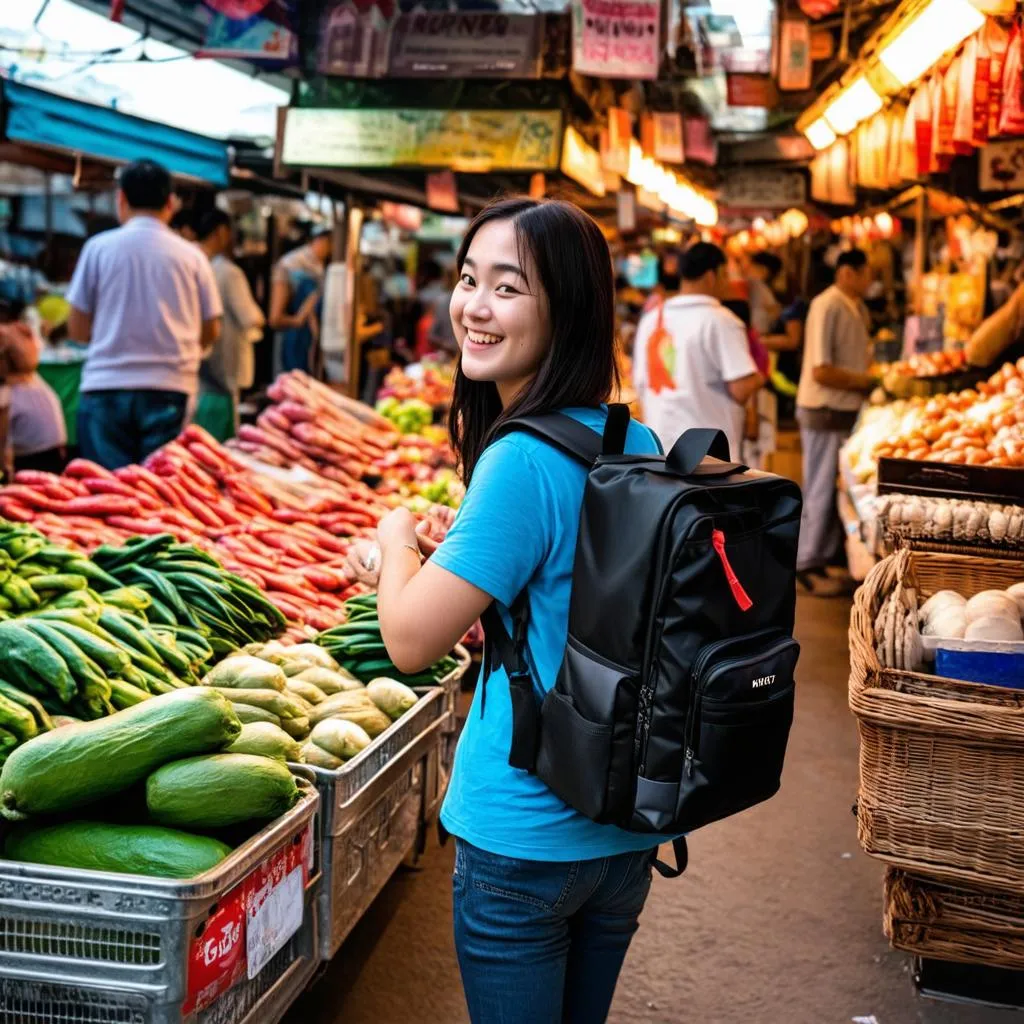Have you ever tossed a coin into the Trevi Fountain, wishing for a magical Roman holiday but worried about breaking the bank? Or maybe you’re dreaming of a backpacking adventure through Southeast Asia, wondering how far your dollars (or dongs) will actually stretch? We’ve all been there! Figuring out how much money you need to travel can feel as daunting as navigating the backstreets of Marrakech.
This comprehensive guide is here to help you answer that burning question: “How Much Money Can I Travel With?” We’ll explore everything from budgeting tips and travel styles to hidden costs and money-saving hacks, so you can plan your next adventure with confidence and excitement.
Understanding Your Travel Budget
Before you even think about booking that flight to Santorini, it’s crucial to understand your personal travel budget.
Factors Influencing Your Travel Costs:
- Destination: A weekend getaway to a bustling city like New York City will likely cost significantly more than a week-long trip to a more affordable destination like Hoi An, Vietnam.
- Travel Style: Are you a luxury traveler who enjoys five-star hotels and Michelin-starred meals? Or do you prefer budget-friendly hostels and street food adventures?
- Travel Duration: A month-long backpacking trip through South America will naturally require a larger budget than a long weekend exploring a nearby city.
- Travel Time: Peak season travel (think summer in Europe or cherry blossom season in Japan) usually comes with higher prices for flights and accommodations.
Budgeting Tips:
- Track Your Spending: Use a budgeting app or spreadsheet to get a clear picture of your monthly expenses.
- Set a Savings Goal: Determine how much you can realistically save each month for your trip.
- Prioritize Experiences: Consider what experiences matter most to you, whether it’s fine dining, adventurous activities, or cultural immersions, and allocate your budget accordingly.
Estimating Costs
While the exact amount of money you’ll need will vary depending on your individual trip, here’s a general guideline for estimated daily costs:
Budget Travel:
- Accommodation: $10-50 per night (hostels, budget guesthouses)
- Food: $15-30 per day (street food, local eateries)
- Transportation: $5-15 per day (public transport, walking)
- Activities: $10-25 per day (free walking tours, budget-friendly attractions)
Mid-Range Travel:
- Accommodation: $50-150 per night (comfortable hotels, boutique guesthouses)
- Food: $30-60 per day (local restaurants, occasional fine dining)
- Transportation: $15-30 per day (taxis, ride-sharing, domestic flights)
- Activities: $25-50 per day (paid attractions, guided tours, unique experiences)
Luxury Travel:
- Accommodation: $150+ per night (luxury hotels, villas)
- Food: $60+ per day (fine dining, unique culinary experiences)
- Transportation: $30+ per day (private transfers, first-class travel)
- Activities: $50+ per day (exclusive tours, private experiences)
Hidden Costs to Consider:
- Visa fees: Some countries require visas for entry, which can range from $20 to $150 or more.
- Travel insurance: Don’t travel without it! Expect to pay around $30-60 for a standard policy.
- Vaccinations: Depending on your destination, you may need vaccinations, which can vary in cost.
- Souvenirs and shopping: Factor in a budget for souvenirs, gifts, and spontaneous purchases.
Money-Saving Tips:
- Travel during shoulder season: Enjoy pleasant weather and fewer crowds while snagging lower prices on flights and accommodations.
- Embrace local experiences: Eat where the locals eat, explore beyond the tourist traps, and take advantage of free activities.
- Consider alternative accommodations: Look into homestays, apartments, or house-sitting for a more affordable and immersive experience.
- Pack light: Avoid checked baggage fees by packing only the essentials.
- Learn basic phrases in the local language: This can help you navigate local markets, negotiate prices, and connect with locals.
 Travel Budget Planning
Travel Budget Planning
FAQs:
1. How much spending money should I bring on a trip?
The amount of spending money you bring depends on your travel style and spending habits. However, it’s always a good idea to have a mix of cash (for smaller purchases and local markets) and credit cards (for larger expenses and emergencies). It’s also wise to withdraw cash from reputable ATMs at your destination.
2. Is it better to exchange currency before or after I travel?
Exchanging currency at your destination’s bank or ATM usually offers the best exchange rates. However, it’s a good idea to have a small amount of local currency on hand when you arrive.
3. What should I do if I run out of money while traveling?
Having a backup plan is crucial. Inform your bank of your travel plans to avoid any frozen accounts. Consider carrying an emergency credit card for unexpected expenses.
Travelcar.edu.vn: Your Trusted Travel Companion
Planning a trip to Vietnam? Discover the enchanting streets of Hoi An, immerse yourself in the vibrant culture of Ho Chi Minh City, or cruise the breathtaking Ha Long Bay with TRAVELCAR.edu.vn. We offer insider tips, destination guides, and trusted resources to help you plan your dream Vietnamese adventure.
Conclusion
Remember, traveling is not about how much money you spend but about the experiences you create. By planning wisely, setting a realistic budget, and embracing the spirit of adventure, you can make the most of your travels, no matter how much money is in your pocket.
 Woman Backpacking Southeast Asia
Woman Backpacking Southeast Asia
What are your top budget travel tips? Share your thoughts in the comments below!
